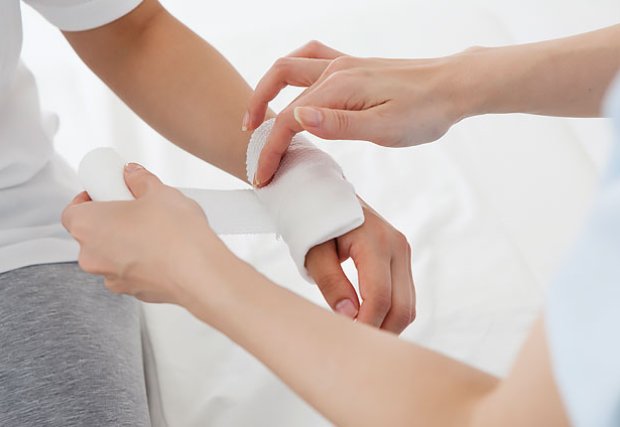Chronic wounds can have a big impact on people’s health and quality of life. “Over 5 million people are affected, and out of those patients, people over 65 account for 85 percent of the cases,” says Lubna Javed, MD, Medical Director of the Advanced Wound Care and Hyperbaric Center at Spring Valley Hospital. She notes that it’s important to talk with your doctor and get timely treatment if you have a wound that isn’t healing and is causing you pain or other problems.
Q: What are chronic wounds?
Generally, if a wound does not improve after four weeks or heal within eight weeks, it is considered a non-healing or chronic wound. Getting treatment is important to avoid possible problems like infection and, in extreme cases, amputation and loss of life.
Q: Who is most at risk?
Many factors play a role in wound healing like age, diseases, infection, oxygen status of the tissue, medications, smoking, nutrition, obesity and circulation. People especially with diabetes and vascular issues are at very high risk for limb loss.
Q: How are chronic wounds treated?
Treatments may include oral medications, debridement (the removal of unhealthy tissue), topical treatments, compression stockings to improve blood flow and other therapries. It's also important to maintain good nutrition, keep your heart healthy and quit smoking.
Q: What is hyperbaric oxygen therapy (HBOT)?
With HBOT, a patient lies in a clear, pressurized chamber and breathes in 100 percent oxygen. This can help to promote the delivery of oxygen to damaged tissues and hard-to-reach areas of the body, and help speed healing for select patients.
For questions or help with chronic wounds, contact the hospitals below for dedicated wound care services and support:
- Centennial Hills Hospital — 702-835-9777
- Desert Springs Hospital — 702-369-7571
- Desert View Hospital — 775-751-7500
- Spring Valley Hospital — 702-853-3853
- Summerlin Hospital — 702-233-7979
- Valley Hospital — 702-671-8660

